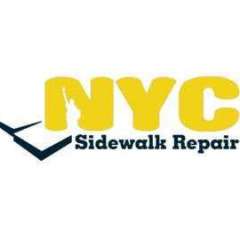-
Welcome to Celiac.com!
You have found your celiac tribe! Join us and ask questions in our forum, share your story, and connect with others.
-
Celiac.com Sponsor (A1):
Celiac.com Sponsor (A1-M):
-
Get Celiac.com Updates:Support Our Content
coffee mug rims source of contamination
-
Get Celiac.com Updates:Support Celiac.com:
-
Celiac.com Sponsor (A17):
Celiac.com Sponsor (A17):
Celiac.com Sponsors (A17-M):
-
Recent Activity
-
- xxnonamexx replied to xxnonamexx's topic in Post Diagnosis, Recovery & Treatment of Celiac Disease18
My journey is it gluten or fiber?
I looked further into Thiamax Vitamin B1 by objective nutrients and read all the great reviews. I think I will give this a try. I noticed only possible side affect is possibly the first week so body adjusts. Life Extensions carries Benfotiamine with Thiamine and the mega one you mentioned. Not sure if both in one is better or seperate. some reviews state... -
- olivia11 replied to olivia11's topic in Gluten-Free Foods, Products, Shopping & Medications2
suggest gluten free food
Thanks I am mostly looking for everyday staples and easy meal ideas nothing too specialty if possible. -
- knitty kitty replied to Roses8721's topic in Celiac Disease Pre-Diagnosis, Testing & Symptoms16
GI DX celiac despite neg serology and no biopsy
There are other Celiac genes. HLA DQ 2 and HLA DQ 8 show up in people from Northern European descent. People of Mediterranean descent have HLA DQ 7. People of Asian descent have HLA DQ 9. There's other Indigenous populations that have other HLA genes that code for Celiac disease. Are you still having symptoms? What do... -
- knitty kitty replied to xxnonamexx's topic in Post Diagnosis, Recovery & Treatment of Celiac Disease18
My journey is it gluten or fiber?
There are eight essential B vitamins. They are all water soluble. Any excess of B vitamins is easily excreted by the kidneys. Thiamine is Vitamin B 1. Thiamine is safe and nontoxic even in high doses. Benfotiamine and TTFD are forms of Thiamine that the body can utilize very easily. The form of Thiamine in the supplements you mentioned is... -
- xxnonamexx replied to xxnonamexx's topic in Post Diagnosis, Recovery & Treatment of Celiac Disease18
My journey is it gluten or fiber?
Thanks very interesting I have to see if I should take these 2 vitamins along with my multi and super Vit B complex or if its too much or would hurt me. I don't have any other health issues but would love to see if this improves anything especially to feel stronger build muscle.
-




Recommended Posts
Archived
This topic is now archived and is closed to further replies.